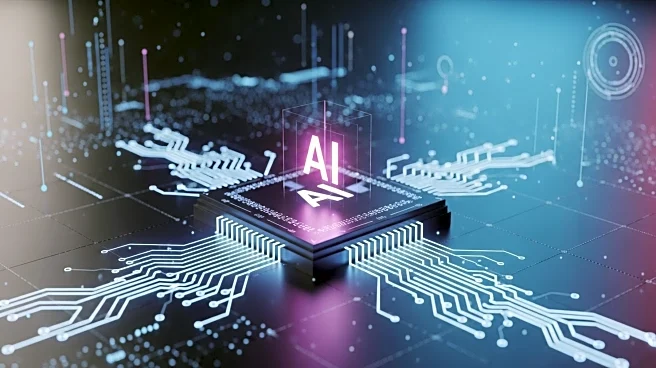What's Happening?
Walmart CEO Doug McMillon has emphasized the transformative impact of artificial intelligence on the workforce, stating that AI will change every job. As the leader of the largest private employer in the U.S., McMillon highlighted the necessity for workers to adapt to AI's integration into the workplace. Walmart plans to maintain its global headcount at 2.1 million over the next three years while expecting revenue growth through AI adoption. The company is focusing on deploying AI tools for customer service and supply chain management, which will initially affect white-collar jobs. McMillon noted that even store and warehouse employees will need to embrace AI technologies to remain relevant.
Why It's Important?
The integration of AI into the workforce signifies a major shift in employment dynamics, potentially leading to job displacement and the need for reskilling. As AI tools become more prevalent, employees must develop new skills to work alongside these technologies. This shift could lead to increased productivity and efficiency but also raises concerns about job security and the future of work. Companies like Walmart are at the forefront of this transition, setting a precedent for other businesses. The broader economic implications include potential changes in labor markets and the need for policy adjustments to address workforce challenges.
What's Next?
Walmart's strategy to integrate AI while maintaining its workforce size suggests a cautious approach to technological adoption. The company's focus on AI-driven growth may prompt other large employers to follow suit, potentially leading to widespread changes in employment practices. As AI continues to evolve, businesses will need to balance technological advancements with workforce stability. Policymakers may need to consider regulations and support systems to assist workers in transitioning to new roles and acquiring necessary skills.









